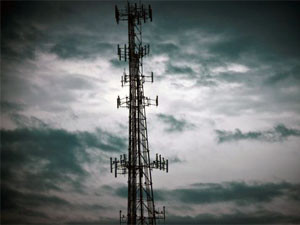
Competition in SA's ICT sector - dominated by a duopoly in the telecommunications sphere and a monopoly in the broadcasting - is ineffective.
This is according to Cell C, which today told the Independent Communications Authority of SA (ICASA) that it considered SA's ICT sector a market failure.
Speaking at the third day of ICASA's high-level inquiry into the state of competition in the ICT sector today, Kerron Edmunson - who represented Cell C at the hearings - defined market failure as follows: "A situation where normal market forces do not work sufficiently well - or at all - so as to ensure allocative and productive efficiency."
She said prices were, on average, still too high; scarce resources (such as spectrum, land and sites) were not allocated fairly or efficiently; and broadband services were not widely available.
Edmunson defined SA's ICT sector, in the electronic communications space, as being defined by two fixed-line operators and a number of Internet service providers; "four" mobile operators and a mobile virtual network operator (which has not managed to garner significant market share).
"We say 'four' mobile operators, because we anticipate the all but exiting of Telkom Mobile from the market."
In the broadcasting sector, said Edmunson, the two free-to-air broadcasters (one of which is the public broadcaster) are a duopoly, while there are two subscription TV operators, with one of them holding the monopoly.
"Each of the free-to-air broadcasters (eTV and SABC) have 100% of their respective markets, while MultiChoice has over 95% of the market by revenue market share and the other (StarSat) is in business rescue. Isn't this a market failure?" she asked.
Edmunson noted Cell C was, apart from Telkom Mobile "for this moment", the smallest mobile operator - in a saturated market. MTN and Vodacom, she said, have 90% of the mobile market by revenue market share.
"If there is no regulatory intervention, we will end up with one fixed operator - a monopoly - and two mobile operators - a duopoly. This is market failure."
She cited spectrum allocation, retail prices, interconnection regulations, facility leasing regulations and number portability regulations (and the high price of switching networks consumers are faced with) as areas Cell C would like to see ICASA intervene in.
Both Vodacom and MTN inicated during the hearings that they felt SA's ICT market was sufficienlty competitive.
Share